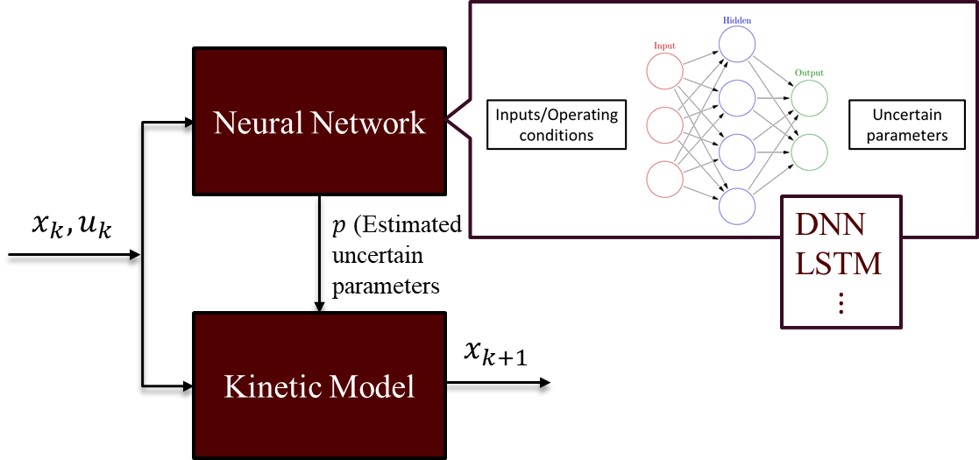
Our research group focuses on hybrid modeling, which combines physics-based models with data-driven techniques. While first-principles models capture process dynamics, they require significant resources and may struggle with complex mechanisms. Data-driven models are easy to construct but lack extrapolation and interpretability. We aim to develop efficient hybrid models that outperform machine learning-based models in terms of extrapolation and interpretation. Our approach involves using hybrid models to estimate unknown system dynamics in bio-fermentation. We develop first-principles models, conduct sensitivity analysis, and estimate time-varying parameters using neural networks. We have collaborated with multiple industrial partners and validated our models using data from lab-scale and industry-scale processes to ensure robustness. These hybrid models are integrated into a model predictive controller for optimal operation, enhancing productivity and cost efficiency while considering constraints. Our goal is to advance hybrid modeling, improve process understanding, and optimize chemical process operations through integration with state-of-the-art machine-learning approaches.
Literature:
Shah, M. Z. Sheriff, M. S. F. Bangi, C. Kravaris, J. S.-I. Kwon, C. Botre, and J. Hirota, “Deep neural network-based hybrid modeling and experimental validation for an industry-scale fermentation process: Identification of time-varying dependencies among parameters,” Chemical Engineering Journal, vol. 441, p. 135643, 2022.
Bangi, Mohammed Saad Faizan, and Joseph Sang-Il Kwon. “Deep hybrid modeling of a chemical process: Application to hydraulic fracturing.” Computers & Chemical Engineering 134 (2020): 106696.
